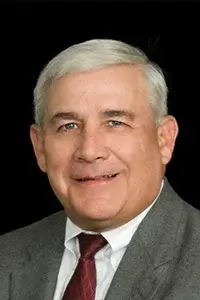Interviews

10 Minutes with Gary Rogers
 Gary Rogers has been an active owner in Kingsley Group Business Brokers for over 25 years. He holds a degree in Industrial Engineering from Purdue University and an MBA from the University of Iowa. Gary has served as Chairman of the Small Business Advisory Council for the Springfield Area Chamber of Commerce and currently serves on the Entrepreneurship Advisory Board at Missouri State University School of Business. Gary is a member of the Board of Directors for the M&A Source and member of the IBBA where he holds professional designations of Lifetime Certified Business Intermediary (CBI); and a Merger & Acquisition Master Intermediary (M&AMI). Gary is also a licensed broker with the Missouri and Arkansas Real Estate Commission.
Gary Rogers has been an active owner in Kingsley Group Business Brokers for over 25 years. He holds a degree in Industrial Engineering from Purdue University and an MBA from the University of Iowa. Gary has served as Chairman of the Small Business Advisory Council for the Springfield Area Chamber of Commerce and currently serves on the Entrepreneurship Advisory Board at Missouri State University School of Business. Gary is a member of the Board of Directors for the M&A Source and member of the IBBA where he holds professional designations of Lifetime Certified Business Intermediary (CBI); and a Merger & Acquisition Master Intermediary (M&AMI). Gary is also a licensed broker with the Missouri and Arkansas Real Estate Commission.
Tell us about your pre-M&A career and how it led you to doing this work?
My pre-M&A career began back in 1969 after graduating from Purdue University with a degree in Industrial Engineering. I spent most of my first 13 years working for Collins Avionics, a division of Rockwell International, in Cedar Rapids, Iowa managing the manufacturing operations of the general aviation division in the production of flight control systems for business aircraft.
The next 7 years were spent as the VP of Manufacturing for a small high-tech start-up company in Cedar Rapids owned by Pioneer. In October of 1987, we were working with Goldman-Sachs to take the company public when the stock market crashed (Black Friday), and our planned IPO for the following Monday was cancelled. Following that major US economic downturn, we split our company into (3) major business units, and I was assigned to be the VP/GM of the Point-of Sale Division, with the direction from Pioneer to confidentially sell off that business unit to one of our major competitors. It was during that assignment where I got my first taste of working on a $20M M&A Transaction, as I was directly involved with the entire negotiation and post-closing transfer of our employees and the associated manufacturing operations.
Since my prior job was eliminated in the sale, I was forced to find a new executive position which landed me in Grand Haven, Michigan, where I was eventually promoted to President of a small manufacturing division of a large public corporation on the NYSE. As a result of my prior experience, I was assigned to my second M&A transaction to confidentially position this division to be sold to a group of private investors. At this point in my career, I had become acutely aware that doing corporate turnarounds and selling off the assets was no longer fun, and that I was not going to ever be able to control my own destiny unless I worked for myself and owned my own business.
My wife and I decided to move further south to Springfield, Missouri, where I began my search to purchase a small business and found that the buying process was just as interesting and professionally satisfying as had been my prior two experiences in the selling process. It was at this point that I changed my mind and cut a deal with the local business broker to join him in the firm, with the promise of buying the business from him upon his pending retirement. I have now owned this predominantly Main Street brokerage business for almost 25 years, and at the age of 73 I still enjoy the professional experience of coming into work every day.
What personal characteristics and strengths have supported your success in this industry?
My management/leadership style is more like “coaching”, than directing, and I take great satisfaction in being considered a “good listener” by both my buyer and seller clients. My many years of managing large numbers of employees has exposed me to a wide variety of diverse personalities, which coupled with a strong corporate financial background, have provided me with the skill set and opportunity to be successful in this Industry.
What is your greatest M&A accomplishment?
It was two years ago assisting the Sellers of a 75-year-old privately owned family business in advising, consulting, and negotiating a successful $20M transaction with a large division of a publicly held International corporation.
With regard to the majority of your engagements, do you work as a team or do you handle things on your own?
The majority of my personal M&A advisory activity is typically handled working by myself with clients on both sides of the transaction, while most of my smaller Main Street engagements are assigned to one of the other eight brokers in my firm.
Do you just do M&A or do you provide other services – valuations, consulting, etc.?
Our firm (Kingsley Group) provides business advisory services for buyers and sellers of both Main Street and Lower Middle Market M&A transactions. In addition, we support that activity by offering non-certified “opinions of value” for our Seller clients, as well as also providing consulting services for select clients involved in M&A transactions.
What is the biggest mistake you have made when working on a deal?
It was not being able to salvage a $4M transaction for a lady who purchase her business from us over 10 years ago, and wanted us to take it back to the market about two years ago. She was a highly successful business owner whose major customers were primarily general contractors that awarded project work via the competitive bid process. While it was well known in the industry that she was registered as a “Female Minority Owned” business, according to her loyal customers having that credential had little or no impact on their decision to award her work. We found a really good and experienced buyer for her and put the business under contract. The buyer opened up an account with a local community bank with a $1M deposit, and we were in the final days of due diligence, when two weeks prior to closing the buyer and his attorney both got nervous that there might be a major future risk to the transaction associated with her female minority business status, which was not going to be transferrable to this male buyer. While this fact had been previously disclosed to the buyer, both in verbal conversation and in the contract, the buyer terminated the deal, and my seller was not willing to spend the time, energy and money take this breach of contract to court.
What are the three most important qualities that you think a good M&A advisor needs to have?
- The first and most important is having “good people skills”.
- The second is having “many years of deal making experience”.
- The third is having “a strong understanding of financial statements”, both income statements and balance sheets.
What is your most interesting deal that you are working on today?
We are in the final stages of preparing to take a specialty niche Flavors & Fragrances manufacturing business to the market for a client that we sold this same business to 3 years ago. He and his partner have more than doubled the value of the company in this short period of time, and we will now be able to present it to the M&A market as a platform company.
How long have you been an M&A Source member and what do you get out of your membership?
I joined IBBA in 2001, and gained invaluable knowledge from the education and training provided to the members. Over the following years the relationships with other Industry professionals that I met in this organization motivated me to join M&A Source, where my long-standing Industry associations resulted in me being elected to the M&A Source Board of Governors. My memberships in both IBBA and M&A Source have helped me to develop into a better deal maker, which has resulted in improved financial success.
As a seasoned M&A advisor, what changes and trends do you see on the horizon that will impact on M&A?
In my opinion, the most significant challenge on the near-term M&A horizon is that of the potential major increases in our US Tax Laws being proposed by the new Administration, along with highly anticipated increases in our Interest Rates. These proposed changes are projected to have a negative future impact on a Seller’s Net Proceeds from the sale of their business, as well as a negative future impact on a Buyer’s ability to finance a deal.
What advice would you give to new people entering the profession?
Depending on their prior experience and personal skill set, I would strongly recommend that they join IBBA or M&A Source (or both), and take advantage of the outstanding professional education and training offered by both of these two sister organizations. In addition, any person new to this Industry should also take full advantage of the professional network of experienced deal makers that are members of these two great organizations.
Please tell us something about yourself that has nothing to do with your M&A career?
I played Big Ten baseball in college at Purdue, and my dream of being a major league baseball player was met by the harsh reality of life, in that my skills were not up to professional standards and upon graduation there was a pressing need for a real income producing job in order to support my family.